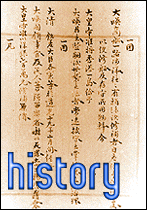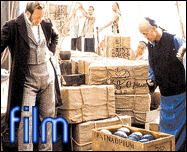
China News Digest's outlined history of the Quing Dynasty may be a good starting place for information on the Opium War as an historical event , or set of events. (A good pictorial history of the era is available through China.COM.) Several other general historical accounts are available on the web: see, for example, this account at CNN's HK97 site ... or this account at the Public Broadcasting System site... or this one posted by Fox News... or this article, at Asiaweek. The U.S. Library of Congress Federal Research Division offers its own brief historical account of the Opium War, as part of its publication, CHINA - A Country Study.
Individuals, too, have posted their own historical accounts (such as those found here, here, here, here, and here), and at least one account speaks more generally on the history of opium in China. Bits and pieces of the history are scattered about the web: one small site includes, at the bottom, some interesting statistics on the number of crates of opium smuggled into China during the period before the Opium War began; another teaches an analytical history of the opium monopoly in China.
The San Francisco-based Pacific News Service has posted an account of one person's return to Hong Kong to witness its "... liberation from a shameful history that began with the Opium War." That liberation was in part celebrated by telling a story of the Opium War, through film.

 (Yapian Zhanzheng), directed by 74-year-old Chinese director
(Yapian Zhanzheng), directed by 74-year-old Chinese director 





